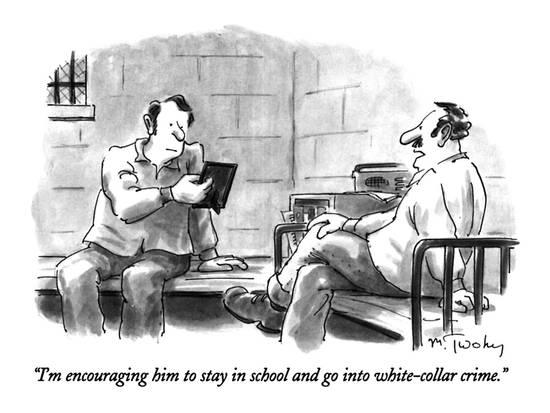We’re having a clearinghouse on criminal justice today. The Washington Post is reporting that Paul Manafort has been convicted on eight counts and that the judge has declared a mistrial on ten other counts. “Manafort was convicted on five counts of filing false tax returns, one count of not filing a required IRS form, and two bank fraud counts.”
Manafort’s guilty verdict may strengthen Mueller’s hand as he continues to investigate possible conspiracy and seeks an interview with the president; an acquittal could have led to a broader effort by conservatives to shut down the special counsel’s office. …
… When the jurors were brought into the courtroom, Ellis told them only that if they failed to agree on a verdict, the case would be “left open and undecided,†and that there was no reason another 12 jurors could decide the case “better or more exhaustively†than they could.
It’s not clear to me what charges they “split” on, and of course we don’t know yet of Mueller will try Manafort again on those charges, just that he could. Manafort’s other trial, on allegations about lying to the FBI, money laundering and foreign lobbying, is scheduled to begin September 17.
Earlier today, there were news reports that Michael Cohen had pleaded guilty, yet there were no details of a deal. Now we have some more information. The New York Times:
Michael D. Cohen, President Trump’s former fixer, pleaded guilty on Tuesday to campaign finance and other charges. He made the extraordinary admission that he paid a pornographic actress “at the direction of the candidate,†referring to Mr. Trump, to secure her silence about an affair she said she had with Mr. Trump.
Mr. Cohen told a judge in United States District Court in Manhattan that the payment was “for the principal purpose of influencing the election†for president in 2016.
I’ll come back to that.
Mr. Cohen also pleaded guilty to multiple counts of tax evasion and bank fraud, bringing to a close a monthslong investigation by Manhattan federal prosecutors who examined his personal business dealings and his role in helping to arrange financial deals with women connected to Mr. Trump.
Now, here’s a critical part:
The plea agreement does not call for Mr. Cohen to cooperate with federal prosecutors in Manhattan, but it does not preclude him from providing information to the special counsel, Robert S. Mueller III, who is examining the Trump campaign’s possible involvement in Russia’s interference in the 2016 campaign.
If Mr. Cohen were to substantially assist the special counsel’s investigation, Mr. Mueller could recommend a reduction in his sentence.
In other words, there’s no deal yet. The deal is still being negotiated.
Now, let’s go back to the first part of Cohen’s plea, about paying a pornographic actress at the direction of a candidate. Doesn’t this implicate Trump in direct violation of campaign finance law? Cohen may not have named Trump. But who else was he working for?
Very bad news here for President Trump in the Cohen pleas. Directly implicates an unnamed “candidate” in his campaign finance crimes. https://t.co/1676SxkUnM pic.twitter.com/qDYvnsp9UJ
— Josh Marshall (@joshtpm) August 21, 2018
Big news day, folks.
Update: Here’s one more:
A judge in Washington, D.C., has thrown out a lawsuit against former British intelligence officer Christopher Steele, who had been sued by Russian oligarchs claiming he defamed them in his dossier about the Trump campaign’s alleged links with Russia.
This feels like three for three.
Update: 13 legal experts weigh in on the Michael Cohen plea. Can we say “unindicted co-conspirator”? Yes, I believe we can!

